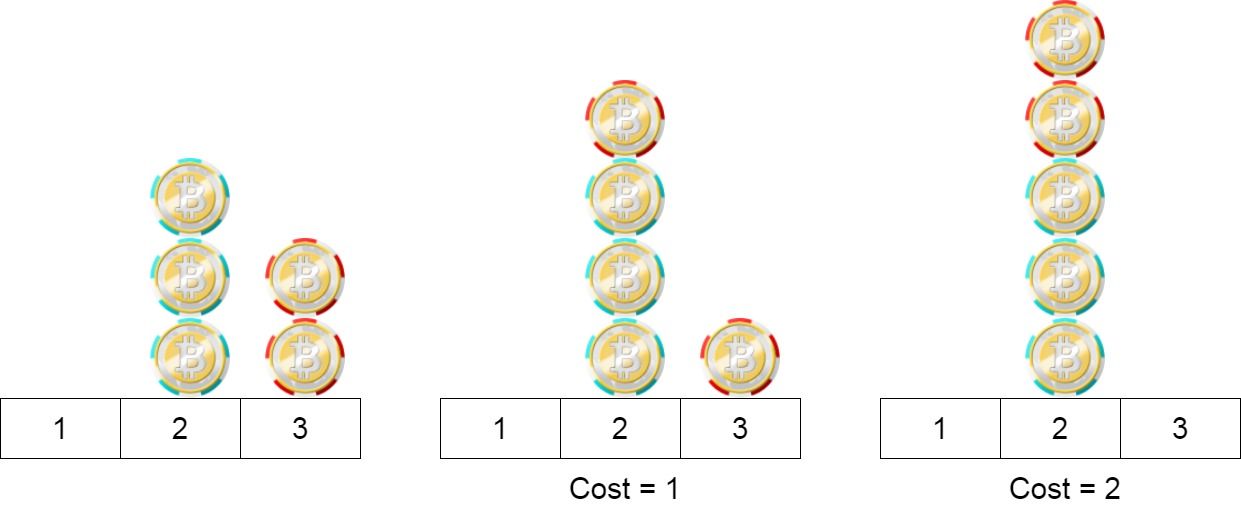We have n chips, where the position of the ith chip is position[i].
We need to move all the chips to the same position. In one step, we can change the position of the ith chip from position[i] to:
position[i] + 2orposition[i] - 2withcost = 0.position[i] + 1orposition[i] - 1withcost = 1.
Return the minimum cost needed to move all the chips to the same position.
Example 1:
Input: position = [1,2,3] Output: 1 Explanation: First step: Move the chip at position 3 to position 1 with cost = 0. Second step: Move the chip at position 2 to position 1 with cost = 1. Total cost is 1.
Example 2:
Input: position = [2,2,2,3,3] Output: 2 Explanation: We can move the two chips at position 3 to position 2. Each move has cost = 1. The total cost = 2.
Example 3:
Input: position = [1,1000000000] Output: 1
Constraints:
1 <= position.length <= 1001 <= position[i] <= 10^9
Move all chips at even indices to position 0, and all chips at odd indices to position 1, all at a cost of 0. Then, choose the position (either 0 or 1) with fewer chips and move these chips to the other position. The minimum cost required is the smaller quantity of chips.
The time complexity is
class Solution:
def minCostToMoveChips(self, position: List[int]) -> int:
a = sum(p % 2 for p in position)
b = len(position) - a
return min(a, b)class Solution {
public int minCostToMoveChips(int[] position) {
int a = 0;
for (int p : position) {
a += p % 2;
}
int b = position.length - a;
return Math.min(a, b);
}
}class Solution {
public:
int minCostToMoveChips(vector<int>& position) {
int a = 0;
for (auto& p : position) a += p & 1;
int b = position.size() - a;
return min(a, b);
}
};func minCostToMoveChips(position []int) int {
a := 0
for _, p := range position {
a += p & 1
}
b := len(position) - a
if a < b {
return a
}
return b
}/**
* @param {number[]} position
* @return {number}
*/
var minCostToMoveChips = function (position) {
let a = 0;
for (let v of position) {
a += v % 2;
}
let b = position.length - a;
return Math.min(a, b);
};
